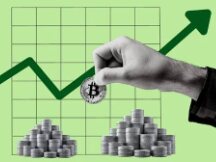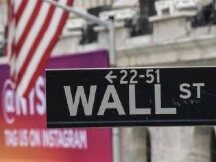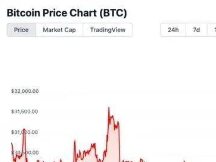Can the young president announce the "Bitcoin City" Building El Salvador on the way to success?

With the backing of Salvadoran President Naibu Booker, people see bitcoin as a volcano in El Salvador that hasn't erupted in years. But it will take a long time to assess whether Bitcoin City can be developed in the future, whether it is a permanent residence or a heavenly castle.
According to media reports, at the close of “Bitcoin Week” last week, Salvadoran President Naive Bucker announced that he would establish a “Bitcoin City” in El Salvador. This is another development in the country since Bitcoin entered competition on September 7th. It also puts volcanic countries in the middle line, as Bitcoin is once again in the “gold rush” around the world.
The world's first "Bitcoin City" will be located in two cities, La Union, El Salvador and Conchagua, warns the state capital of La Union, will be like a coin. The government of Salvador plans to use several volcanic countries to create a "Bitcoin City" and the power plants adjacent to the volcano to provide energy for Bitcoin mining. "Bitcoin City" does not pay taxes except for 10% VAT.
With the president's backing, people think of Bitcoin as a volcano in El Salvador that hasn't erupted in years. But it will take a long time to assess whether Bitcoin City can be developed in the future, whether it is a permanent residence or a heavenly castle.
the dictator's ordeal

At the end of Bitcoin Week, after the 1980s, the Salvadoran president wore a baseball cap and wore white to promote his city to the world in an almost global market. “It will be a big city with residential areas, shopping areas, restaurants, airports, ports and rail lines,” Booker said at the closing conference. “Do business here and make the money you want,” he said directly on Twitter.
El Salvador will also announce the world's first Bitcoin government bond backed by blockchain technology company Blockstream. These 10-year bonds, called "volcanic bonds", have coupons of 6.5%, and will be used to build "Bitcoin City", half bitcoin and half bitcoin.
There are clear reasons for the massive use of Bitcoin in El Salvador.
El Salvador was an agricultural country, in the past grains such as coffee and cotton were the main sources of income, but also supported small businesses. The country's economy is based on remittances, and by 2020, more than 2 million Salvadorans will return an estimated $ 6 billion in remittances, or 23% of the country's GDP. Most of them flow straight into the pockets of traders across the border. Bitcoin allows people to reduce the cost of sending money to some extent.
But the President of El Salvador, Naibu Booker, is in the realm of "Bitcoin City". This is also due to Booker's almost complete management of all public power. As his party won 64 of the 84 seats in the process of supporting the 'Bitcoin Act', after the president submitted the bill to the National Assembly, discussion of whether to prosecute the bill was not discussed. allowed for a few hours and takes place without modification.
Booker compares "Bitcoin City" to a city founded by Alexander the Great of the Kingdom of Macedonia. "There are airports, residential areas, business areas with a square base that looks like a Bitcoin symbol in the sky."
The futuristic city that Booker describes may not be prosperous, but it is nothing more than a paradise in El Salvador. Because El Salvador has a different name: Iraq of America. Its beautiful location, but its economy has not grown and the stressful population has made it one of the most unstable countries in the world. Local gangs are plentiful, averaging 1 in 2 gangs, with the highest gang rates in the world. Fires, drugs and other heinous crimes are rampant, and homicides account for about 30% of all deaths each year.
Faced with such security, people seem reluctant to protect their heritage and government rights.
According to a study by the University of the Capital Francisco Gavidia (UFG), 77% of Salvadorans think Bitcoin is "inaccurate" or "unprofessional" in terms of legal value, and 61% of Salvadoran traders dislike Bitcoin. I try not to accept. this. And 82.8% of people love the US dollar, and 95% think the US dollar is a good asset for their financial security.
In fact, most Salvadorans still don't know what Bitcoin is. The same study found that almost everyone over 65 in the United States views Bitcoin as a precious metal, and between ages 30 and 55 sees it as a metal and virtual currency. Only people between the ages of 18 and 29 have Bitcoin as a virtual currency.
On September 7 of this year, El Salvador recognized Bitcoin as the fiat country alongside the US dollar. Earlier in June, El Salvador announced that it would be the first country in the world to use Bitcoin as a fiat currency. The move sparked unrest and confusion in the region, sparked anti-Bitcoin protests across El Salvador, and even burned down Bitcoin ATMs and sparked unrest.
The use of Bitcoin as legal tender and the development of "Bitcoin City" appear to be accelerating due to lack of public awareness and weak infrastructure.
Digital wallets that often fail
A law passed in June this year will allow products to be exchanged for Bitcoin from September 7 in El Salvador, forcing all industry associations to accept Bitcoin as a means of payment, and the Bitcoin market will not be submitted. investment tax. use. Cryptocurrency pays taxes and duties.
Early Use of Bitcoin On September 7, the government of El Salvador announced a Bitcoin electronic wallet app called Chivo, giving every citizen $ 30 worth of Bitcoin and installing over 200 new ATMs throughout the system.
According to the Wall Street Journal, the Booker government also allocated $ 150 million to secure the exchange, with the aim of allowing people to exchange bitcoins for US dollars at Chivo e.-pay money. In addition, anyone who invests 3 bitcoins in El Salvador will receive a permanent debit card.
Many Bitcoin-friendly policies do not help "free the problem" from failure. In the early days, Bitcoin officially became the local fiat currency, El Salvador suffered a stock market crash, and the wallet failed. Due to poor technology, Chivo Bitcoin e-wallet has encountered problems such as shipping failure, failure and inability to receive returns after it goes live.
Hundreds of protesters took to the streets, and many said in interviews that using Bitcoin as a lucrative resource could wreak havoc on the national economy and the people of El Salvador. Many people fear losing their savings or their retirement. Because the value of Bitcoin fluctuates so well, the real process is difficult, and despite poor financial management, many people believe that using Bitcoin is a form of "gambling."
International financial institutions such as the World Bank, the International Monetary Fund (IMF) and the Inter-American Development Bank have expressed concern about the financial risks of El Salvador's decision. In addition to the market risk associated with trading Bitcoin, the World Bank and the International Monetary Fund (IMF) have said that making Bitcoin more profitable would make it easier for countries to become investors when it comes to money laundering and investment. 'other financial crimes.
With the risk of business and financial turmoil, El Salvador's decision to promote Bitcoin as a fiat currency is intended to spur growth, and the prospect has been of concern to all parties. .
Crypto Money, "poison" or "decryption"?
Why is El Salvador so proud of its digital advantages? Some believe that it was Naib Bukel who attempted to enter El Salvador by attracting foreign gold bars using assets such as Bitcoin to constantly replace the country's finances, stimulate the development, repair and development of the country. country, and look to the rivers. However, its benefits are not yet known.
Distribution Technology CEO Da Hongfei believes El Salvador's "Bitcoin City" will use the proceeds to purchase Bitcoin. This is an important part of the country's petty skepticism of the global economy currently being driven by the US dollar. El Salvador's push for Bitcoin also recognizes that blockchain technology has become more mature and capable of supporting key financial functions such as publicly traded contracts.
Representatives from Central America representing El Salvador also began to rally to show greater interest in funding cryptocurrencies, including Carlitos Rejala from Paraguay, Panama representative Gabriel Silva and leaders from Argentina, the Brazil, Colombia, Mexico and Ecuador. These nations have all suffered from colonization, underdeveloped economies, massive inflation, and weak sovereign interests. If El Salvador grows easily, crypto-finance may become a new hobby for these Central American countries.
El Salvador's Minister of Trade and Investment, Miguel Kattán, told local newspaper El Mundo: “The US dollar will continue to be El Salvador's fiat currency. Its daily operations can benefit from Bitcoin. In other words, in the current context, the performance of cryptocurrencies is similar to the US dollar, helping to reduce the value of the currency and boost the country's economy, but is now unknown.
Da Hongfei bluntly stated that El Salvador's "Bitcoin City" announced that it would only increase the "value added tax", indicating that its main objective was to promote growth in the real economy. From different angles, it is necessary to maximize the capacity of the city itself and find the most appropriate financial distribution of services. This way, it is less likely to be affected by international trade.
The fact that “Bitcoin City” can finally be improved means that El Salvador has found new avenues for true business development, and we may see more and more Salvadoran cities becoming “Bitcoin City”. . And if you use Bitcoin as a "foreign currency" to eliminate foreign currency and allow your own business to find the best job in the global trading system, both of these things can be found in El Salvador and are very well received. . Other small international conferences could follow this path.
In 2017, Venezuela in South America announced that it would release Petrocoin, a cryptocurrency in the country's oil and mineral reserves to break the US economic blockade. Ultimately, however, the oil profits were not internationally recognized and failed to meet Venezuela's international financial needs, and it certainly failed. However, the path between Bitcoin and the legitimacy of the US dollar cryptocurrency chosen by El Salvador can be seen as the “middle ground” between the US dollar and digital currencies.
Naib Bukel has been linked with crypto financial institutions to achieve the goal of the Kingdom of Macedonia. However, with the constant use of technology and the public outcry, real-world restrictions are hampering the ability of young leaders to control them.
Whether Bitcoin is El Salvador's "poison" or "antidote" will last long enough.

Scan QR code with WeChat





